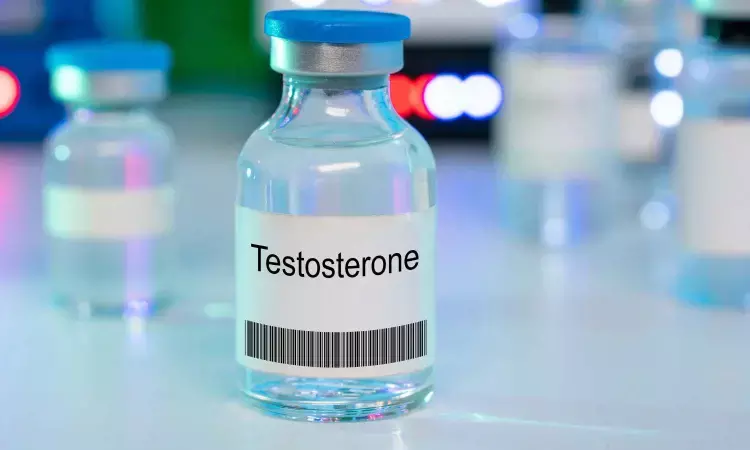- Home
- Medical news & Guidelines
- Anesthesiology
- Cardiology and CTVS
- Critical Care
- Dentistry
- Dermatology
- Diabetes and Endocrinology
- ENT
- Gastroenterology
- Medicine
- Nephrology
- Neurology
- Obstretics-Gynaecology
- Oncology
- Ophthalmology
- Orthopaedics
- Pediatrics-Neonatology
- Psychiatry
- Pulmonology
- Radiology
- Surgery
- Urology
- Laboratory Medicine
- Diet
- Nursing
- Paramedical
- Physiotherapy
- Health news
- Fact Check
- Bone Health Fact Check
- Brain Health Fact Check
- Cancer Related Fact Check
- Child Care Fact Check
- Dental and oral health fact check
- Diabetes and metabolic health fact check
- Diet and Nutrition Fact Check
- Eye and ENT Care Fact Check
- Fitness fact check
- Gut health fact check
- Heart health fact check
- Kidney health fact check
- Medical education fact check
- Men's health fact check
- Respiratory fact check
- Skin and hair care fact check
- Vaccine and Immunization fact check
- Women's health fact check
- AYUSH
- State News
- Andaman and Nicobar Islands
- Andhra Pradesh
- Arunachal Pradesh
- Assam
- Bihar
- Chandigarh
- Chattisgarh
- Dadra and Nagar Haveli
- Daman and Diu
- Delhi
- Goa
- Gujarat
- Haryana
- Himachal Pradesh
- Jammu & Kashmir
- Jharkhand
- Karnataka
- Kerala
- Ladakh
- Lakshadweep
- Madhya Pradesh
- Maharashtra
- Manipur
- Meghalaya
- Mizoram
- Nagaland
- Odisha
- Puducherry
- Punjab
- Rajasthan
- Sikkim
- Tamil Nadu
- Telangana
- Tripura
- Uttar Pradesh
- Uttrakhand
- West Bengal
- Medical Education
- Industry
Testosterone Replacement Therapy In Men With Hypogonadism exhibits CV Safety: TRAVERSE Trial

A recent randomized trial, known as TRAVERSE published in New England Journal Of Medicine has demonstrated that testosterone-replacement therapy is noninferior to placebo regarding the occurrence of major adverse cardiac events among men with hypogonadism and established or high risk for cardiovascular disease.
The results of the trial indicate use of testosterone therapy was noninferior to placebo for incidence of major adverse cardiovascular events (MACE).
The study's findings were presented by Dr. A. Michael Lincoff from the Cleveland Clinic during the annual meeting of the Endocrine Society.
The TRAVERSE trial enrolled 5,246 men aged 45 to 80 with hypogonadism symptoms and pre-existing or high risk for cardiovascular disease. Patients were randomly assigned to receive either daily transdermal 1.62% testosterone gel or placebo gel, with testosterone levels monitored to maintain appropriate ranges.
● Over a mean follow-up period of 33 months, the primary cardiovascular endpoint, defined as the first occurrence of death from cardiovascular causes, nonfatal myocardial infarction, or nonfatal stroke, was reported in 7% of patients in the testosterone group compared to 7.3% in the placebo group.
● The hazard ratio for noninferiority was 0.96 (95% CI 0.78-1.17, P<0.001), indicating that testosterone therapy was not inferior to placebo in terms of cardiovascular safety.
● The study did identify potential risks associated with testosterone-replacement therapy. The analysis revealed increased risks of atrial fibrillation (3.5% vs. 2.4%), acute kidney injury (2.3% vs. 1.5%), and pulmonary embolism (0.9% vs. 0.5%) in the testosterone group compared to the placebo group.
The authors of the study highlighted that controlled trials have previously shown the benefits of testosterone therapy in improving sexual function, bone mineral density, anaemia correction, and reducing depressive symptoms in older men. However, uncertainty about its cardiovascular outcomes has limited the use of testosterone therapy in clinical practice.
Dr. Bradley Anawalt from the University of Washington emphasized the importance of the study's results and cautioned against hasty conclusions. He noted that while the study provides evidence of testosterone therapy's cardiovascular safety, the increased risk of heart arrhythmia and pulmonary embolism should be taken into consideration, particularly in patients with a high risk of blood clots.
Dr. Maria Stamou from Mass General Brigham also expressed her enthusiasm for the TRAVERSE study's contributions to the field. She emphasized the need for a comprehensive evaluation of patients considering testosterone-replacement therapy, including monitoring prostate-specific antigen (PSA) levels to assess the impact on the prostate.
Nested substudies within TRAVERSE did not show a significant increased risk of prostate cancer or urinary tract infections associated with testosterone therapy. However, fractures were more frequent in the testosterone group compared to the placebo group, and the reason for this observation remains unknown.
The results of the TRAVERSE trial provide valuable insights for clinicians and patients in weighing the potential benefits and risks of testosterone therapy. While the study demonstrates testosterone's cardiovascular safety, the increased risks of certain adverse events should be taken into account when making treatment decisions. Further research is needed to understand the underlying reasons behind the observed fracture risk.
Reference:
New England Journal of Medicine Lincoff AM, et al "Cardiovascular safety of testosterone-replacement therapy" N Engl J Med 2023; DOI: 10.1056/NEJMoa2215025.
Dr Kamal Kant Kohli-MBBS, DTCD- a chest specialist with more than 30 years of practice and a flair for writing clinical articles, Dr Kamal Kant Kohli joined Medical Dialogues as a Chief Editor of Medical News. Besides writing articles, as an editor, he proofreads and verifies all the medical content published on Medical Dialogues including those coming from journals, studies,medical conferences,guidelines etc. Email: drkohli@medicaldialogues.in. Contact no. 011-43720751


